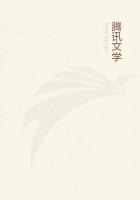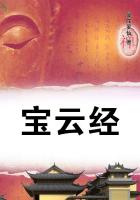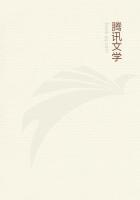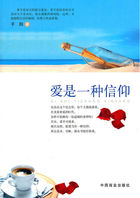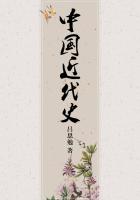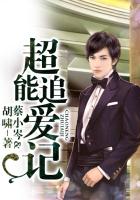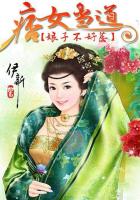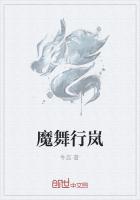To La Farge, eccentricity meant convention; a mind really eccentric never betrayed it. True eccentricity was a tone -- a shade -- a nuance -- and the finer the tone, the truer the eccentricity. Of course all artists hold more or less the same point of view in their art, but few carry it into daily life, and often the contrast is excessive between their art and their talk. One evening Humphreys Johnston, who was devoted to La Farge, asked him to meet Whistler at dinner. La Farge was ill -- more ill than usual even for him -- but he admired and liked Whistler, and insisted on going. By chance, Adams was so placed as to overhear the conversation of both, and had no choice but to hear that of Whistler, which engrossed the table. At that moment the Boer War was raging, and, as every one knows, on that subject Whistler raged worse than the Boers. For two hours he declaimed against England -- witty, declamatory, extravagant, bitter, amusing, and noisy; but in substance what he said was not merely commonplace -- it was true! That is to say, his hearers, including Adams and, as far as he knew, La Farge, agreed with it all, and mostly as a matter of course; yet La Farge was silent, and this difference of expression was a difference of art. Whistler in his art carried the sense of nuance and tone far beyond any point reached by La Farge, or even attempted; but in talk he showed, above or below his color-instinct, a willingness to seem eccentric where no real eccentricity, unless perhaps of temper, existed.
This vehemence, which Whistler never betrayed in his painting, La Farge seemed to lavish on his glass. With the relative value of La Farge's glass in the history of glass-decoration, Adams was too ignorant to meddle, and as a rule artists were if possible more ignorant than he; but whatever it was, it led him back to the twelfth century and to Chartres where La Farge not only felt at home, but felt a sort of ownership. No other American had a right there, unless he too were a member of the Church and worked in glass. Adams himself was an interloper, but long habit led La Farge to resign himself to Adams as one who meant well, though deplorably Bostonian; while Adams, though near sixty years old before he knew anything either of glass or of Chartres, asked no better than to learn, and only La Farge could help him, for he knew enough at least to see that La Farge alone could use glass like a thirteenth-century artist. In Europe the art had been dead for centuries, and modern glass was pitiable. Even La Farge felt the early glass rather as a document than as a historical emotion, and in hundreds of windows at Chartres and Bourges and Paris, Adams knew barely one or two that were meant to hold their own against a color-scheme so strong as his. In conversation La Farge's mind was opaline with infinite shades and refractions of light, and with color toned down to the finest gradations. In glass it was insubordinate; it was renaissance; it asserted his personal force with depth and vehemence of tone never before seen.
He seemed bent on crushing rivalry.
Even the gloom of a Paris December at the Élysée Palace Hotel was somewhat relieved by this companionship, and education made a step backwards towards Chartres, but La Farge's health became more and more alarming, and Adams was glad to get him safely back to New York, January 15, 1900, while he himself went at once to Washington to find out what had become of Hay. Nothing good could be hoped, for Hay's troubles had begun, and were quite as great as he had foreseen. Adams saw as little encouragement as Hay himself did, though he dared not say so. He doubted Hay's endurance, the President's firmness in supporting him, and the loyalty of his party friends; but all this worry on Hay's account fretted him not nearly so much as the Boer War did on his own. Here was a problem in his political education that passed all experience since the Treason winter of 1860-61! Much to his astonishment, very few Americans seemed to share his point of view; their hostility to England seemed mere temper; but to Adams the war became almost a personal outrage. He had been taught from childhood, even in England, that his forbears and their associates in 1776 had settled, once for all, the liberties of the British free colonies, and he very strongly objected to being thrown on the defensive again, and forced to sit down, a hundred and fifty years after John Adams had begun the task, to prove, by appeal to law and fact, that George Washington was not a felon, whatever might be the case with George III. For reasons still more personal, he declined peremptorily to entertain question of the felony of John Adams. He felt obliged to go even further, and avow the opinion that if at any time England should take towards Canada the position she took towards her Boer colonies, the United States would be bound, by their record, to interpose, and to insist on the application of the principles of 1776. To him the attitude of Mr. Chamberlain and his colleagues seemed exceedingly un-American, and terribly embarrassing to Hay.
Trained early, in the stress of civil war, to hold his tongue, and to help make the political machine run somehow, since it could never be made to run well, he would not bother Hay with theoretical objections which were every day fretting him in practical forms. Hay's chance lay in patience and good-temper till the luck should turn, and to him the only object was time; but as political education the point seemed vital to Adams, who never liked shutting his eyes or denying an evident fact. Practical politics consists in ignoring facts, but education and politics are two different and often contradictory things. In this case, the contradiction seemed crude.
With Hay's politics, at home or abroad, Adams had nothing whatever to do. Hay belonged to the New York school, like Abram Hewitt, Evarts, W.

